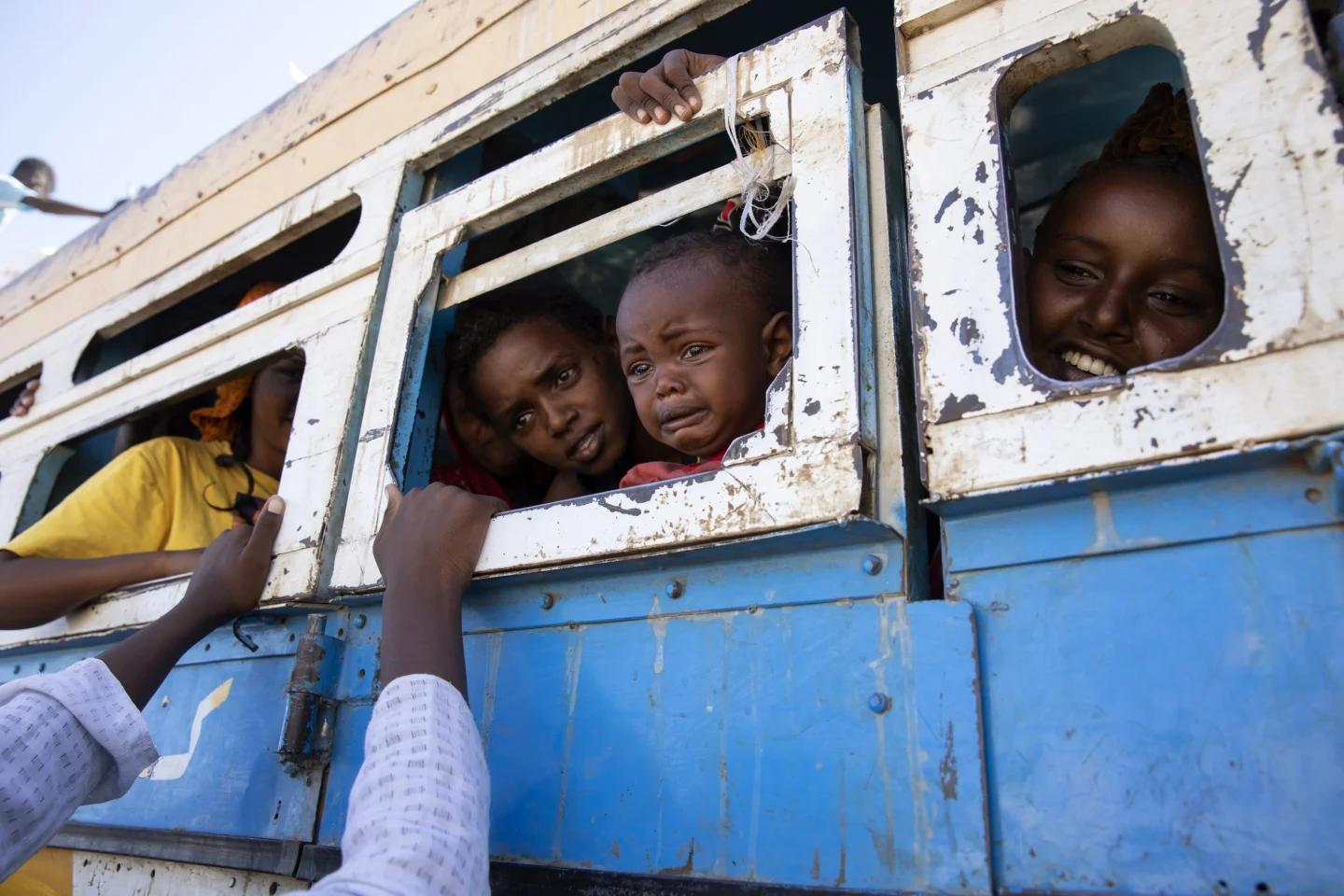YAOUNDÉ, Cameroon – Still reeling from the aftermath of a brutal war, the northern Ethiopian town of Tigray, according to Catholic aid officials, is also facing an unfolding humanitarian crisis, driven in large part by drought and crop failure.
Media reports indicate that reservoirs and the farmlands they help irrigate have dried up because the rains failed last year, a crisis confirmed by Magnus MacFarlane-Barrow, the CEO of the Catholic charity Mary’s Meals.
“The lack of consistent rainfall for three previous rainy seasons adversely affected water supplies and agricultural production, wreaking havoc on the potential harvests,” MacFarlane-Barrow told Crux.
The lack of moisture is devastating for a region in which about 75-80 percent of the population is farmers. They depend on rainfall for effective irrigation and farming communities rely on rainfall and the food it helps them to produce for their survival.
“Families can’t sustain themselves without adequate water, and fields that can’t be planted have a massive impact on food production,” MacFarlane-Barrow said.
He said the drought has intensified the food insecurity in a region trying to rebuild following a devastating war, and that it is already engulfing the people of Tigray.
In June, the Famine Early Warning Systems Network (FEWS NET) – a leading provider of early warning and analysis on acute food insecurity around the world – projected that from June-September much of Tigray could experience crisis and emergency levels of hunger.
“The most recent rainy season has been promising so far but given the long-term lack of rain, the region will need several good rainy seasons to recover fully,” MacFarlane-Barrow told Crux.
He said the situation has been made even more untenable for women and girls who have become victims of sexual violence.
“Official statistics suggest there are more than 120,000 survivors of sexual violence in the region and that the conflict claimed an estimated 600,000 lives,” he said.
Describing the situation in Tigray as “dire”, MacFarlane-Barrow told Crux that in the last four years, Tigray has suffered through COVID, a civil war, economic disruption, and destruction of land and infrastructure.
“Almost two years after the war officially ended in 2022, the region is struggling to recover: it’s estimated that 4.5 million people are in need of emergency food aid, 700,000 children are out of school, and local officials warn that nearly two million people are at risk of starvation,” he said.
The rising hunger and the evident negative impacts on school children has also become an issue of great concern. The Catholic charity is now doing what it does best: providing school meals to school children to help them continue to learn in a difficult environment.
“There’s a saying that an empty stomach doesn’t have ears to listen,” MacFarlane-Barrow said.
“For children, hunger affects everything: health, growth, energy, and the ability to focus, learn and participate. A lack of consistent healthy meals can lead to malnutrition, susceptibility to illness and a lack of strength to attend school,” he explained.
“Mary’s Meals is urgently scaling its school feeding program in Tigray,” MacFarlane-Barrow said.
“School meals are a critical and pragmatic strategy to tackle hunger and education crises, serving as a lifeline for children living in extremely challenging circumstances like those in Tigray,” he told Crux.
He said feeding children where they learn provides them with essential food and access to education.
He explained that Mary’s Meals, in collaboration with its local partner, provides Tigray’s largest school feeding program. The initiative ensures that children receive a daily meal, encouraging their continued engagement with education.
“Enrollment increases so schools can remain open; families are assured their child will be receiving a meal while they learn; and communities find hope as they work together to deliver the program and see its impact,” he told Crux.
He said after visiting Tigray recently, some of the children told him that the meals Mary’s Meals provide may be the only food they will eat in a day.
“Despite that, the students told us they often shared their meals with hungry children who gathered around the school in search of food.”
By supporting the tireless work of its expert in-country partner, Mary’s Meals continues to expand its school feeding program to urgently address acute child hunger and its role in disrupting education.
The impact has been significant, says Alex Keay, Director of Programs at Mary’s Meals.
He said the Daughters of Charity (the in-country partner with Mary’s Meals) has rapidly scaled the feeding program, “growing its reach from 24,000 learners in 36 schools before the war to now more than 110,000 children in over 200 schools. “
He told Crux that the school meals have brought kids back to classrooms to continue their education, and are helping fight malnutrition and sickness.
“With increased enrollment, schools are able to stay open while the community manages the feeding program,” he said.
He cited the case of the Ara Primary School in the Hintalo Wajirat District of Tigray that recently established a successful school feeding program.
“Before the program began, teachers, parents and students struggled daily to find enough food to eat,” Keay said.
He said that in order to join the Mary’s Meals program and provide lifesaving food to children, the community worked together to construct a kitchen and shaded area for children to eat in, and organized volunteers to cook and serve nutritious daily meals.
“Mary’s Meals will continue to work with its global movement of supporters and volunteers to feed more children in Tigray. We understand that hunger is one of the major barriers to children in Tigray returning to school; we will continue to do all we can to reach the next hungry child in Tigray and give them an opportunity to go to school and to receive a daily meal,” Keay said.













